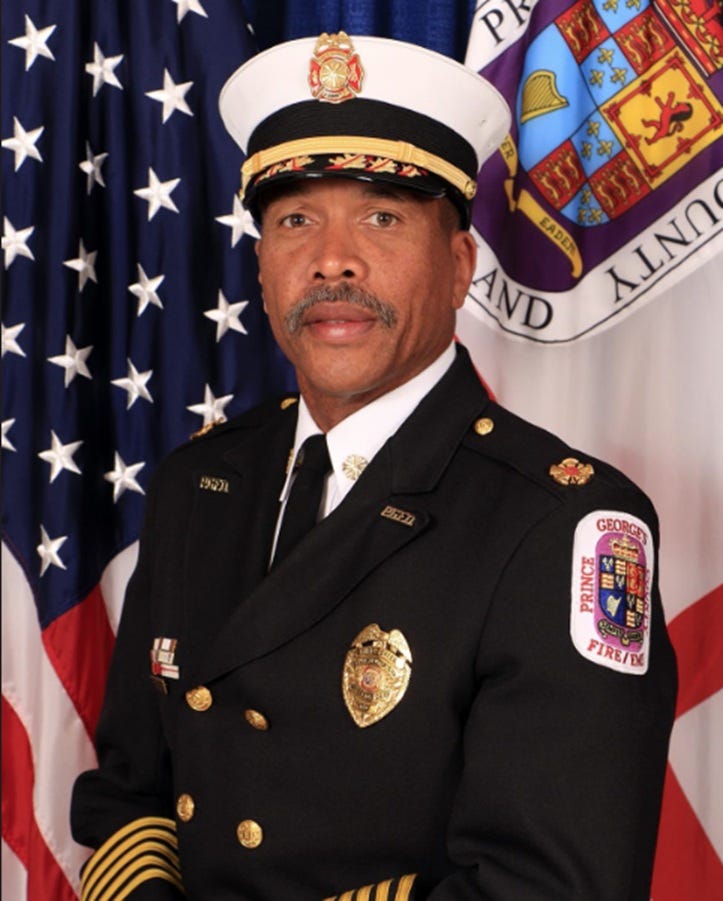Flow Characteristic #5: Confidence and the Feeling of Being in Control
(Even if you are not in control!)
[Chief Benjamin M. Barksdale passed away on April 26, 2025. R.I.P., Chief. Thank you for your stories.]
This characteristic of flow encapsulates the sense of mastery and autonomy, a feeling of empowerment to navigate the challenges that you face in the activity with a sense of self-assurance and agency. Flow experiences give you the sense that you are in control and not worried about losing control.
While confidence is not directly named as one of Csikszentmihalyi’s characteristics of flow, it is a byproduct of feeling as if you can exercise control in difficult situations, which leads to a heightened sense of efficacy and accomplishment. You feel empowered to make choices and take actions that align with your goals and values, which allow you to assert control over your experiences and outcomes. This sense of autonomy fosters a deep sense of ownership and responsibility, as you feel personally invested in the pursuit of your objectives.
Ben Barksdale, former Chief of Prince George’s County, Maryland, Fire and Emergency Medical Services, was a firefighter at the Pentagon on 9/11, where he and his crew had to work for 36 hours straight. When I asked him what kept him going during that time and still manage to get the job done, at first, he said, “Adrenalin,” but he followed with
How you are trained. If a person is confident in how they have been trained and what they have been trained on and, as long as they are successful in carrying out the mission, everything is just moving along. I think it is when things don’t go well, if you are not able to complete a lot of objectives or whatever the assignments are, then you start reflecting on the negative. You get frustrated and that is where you are not effective, so there is no flow.
Feeling confident and in control is a dynamic state facilitated by knowledge. You must remain open to feedback and adaptable to changing circumstances, which gives you the ability to adjust strategies and responses as needed to maintain your flow state. This flexibility enables you to navigate uncertainty and complexity with resilience and grace, enhancing your overall sense of competence and self-assurance.
Battalion Chief Paige Colwell of the Forsyth County, Georgia, Fire Department tempered her comments about confidence by saying she monitors herself for feelings of over-confidence:
As soon as you think you are good at something, something will happen to show you that you are not God. You might be good at something, but there are going to be situations where the best you can do is not going to happen—like when trying to mitigate a pulmonary embolism—It doesn’t matter what I do. It’s going to end up in a bad way, even with your best efforts. You can’t get everything right; there’s nothing you can do.
Challenge and risk coexist with the feelings of confidence and control. When you embrace challenges and setbacks as opportunities for growth and learning, you can view them as integral aspects of the flow experience, further strengthening confidence and the sense of control as you navigate the ebb and flow of life’s challenges.
Moreover, the feeling of being confident and in control in flow is enriched by a sense of presence and mindfulness. You are fully engaged in the present moment, attuned to the nuances of your experience and responsive to the demands of the task. This heightened state of awareness enhances your ability to perceive and respond to opportunities and threats, further reinforcing your sense of confidence and mastery.
Richard B. Gasaway, Ph.D., retired Fire Chief of Roseville, Minnesota, Fire Department, told me a story about being the first to arrive and observing a “big fire in a big building.” He said he had one of two choices, “that was to freak out or the other one was to get into the zone and do what I have been taught to do.” He was aware of his feelings in the situation and consciously calmed himself down. All of his communications were calm and direct. He validated this when he listened to the tapes following the incident. His experience with this fire gave him confidence in later incidents.
This was the biggest fire of my career, and I can’t even describe how I knew what to do, but I did. It flowed like I was an orchestra leader leading an orchestra. I was ‘game on’ and just knew what to do, what to have other people do, and deal with all the little problems that were coming along the way. It just seemed like I was unshakable. I had a comfort level with commanding, but I didn’t have a comfort level of commanding an incident of that size.
That particular incident influenced me in later incidents. It gave me a confidence that, when I’m under that kind of stress, instead of freaking out, I will calm down. I think that incident helped to build my confidence that there is a zone state that I can get into that will help me through a large-scale incident and everything I’m doing feels right. When you are doing it and you are doing it well and it feels good and you are in the zone, confidence seems to be a logical by-product of that state of being.
The characteristic of the feeling of being confident and in control is a central aspect of the flow experience, encapsulating the sense of mastery, autonomy, agency, and presence that you experience when fully immersed in an activity. This confidence and sense of control empower you to navigate challenges with grace and resilience, fostering a deep sense of efficacy and fulfilment that permeates every aspect of your life.
No matter how you subscribe, I thank you for reading!
Learn to flow!
Dr. Judy

